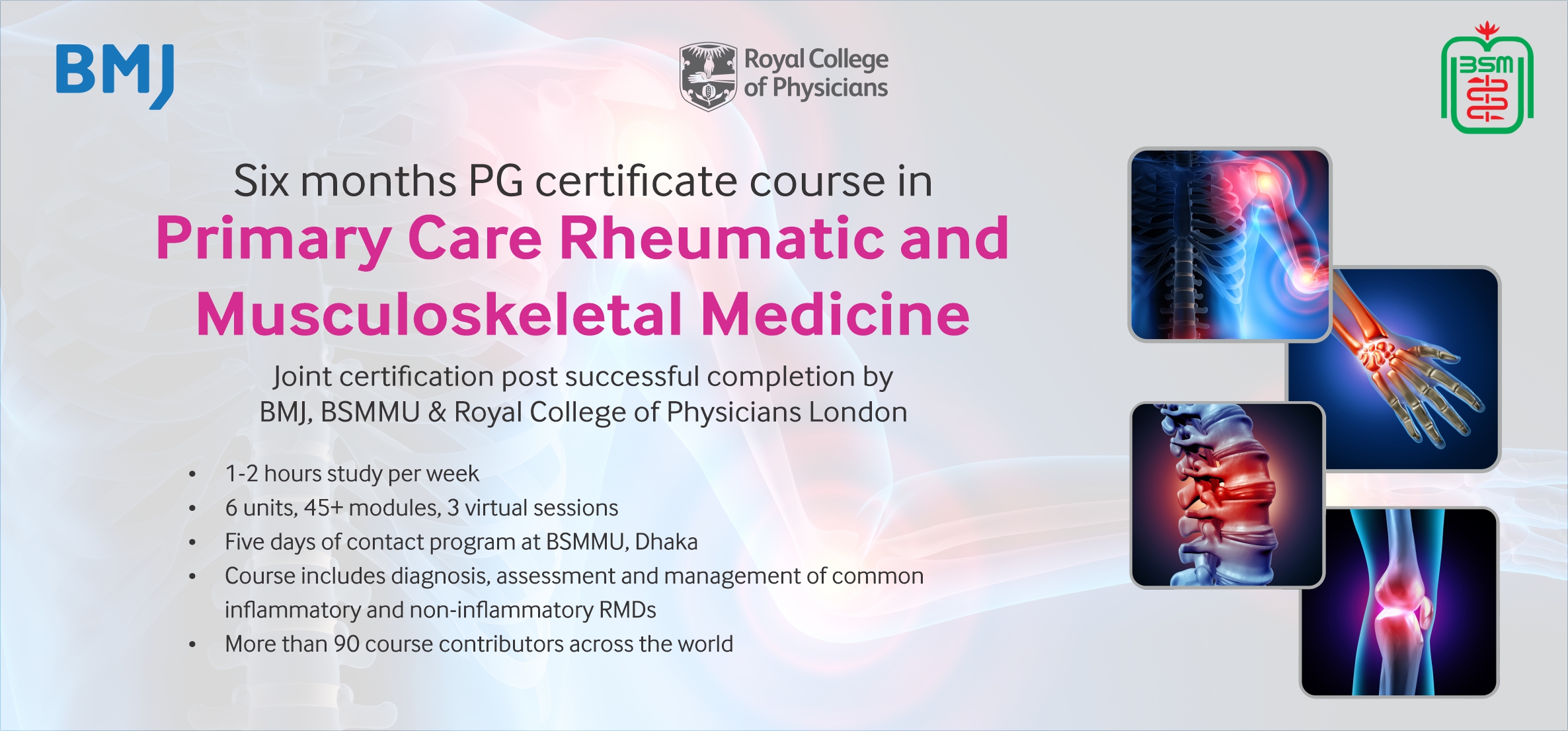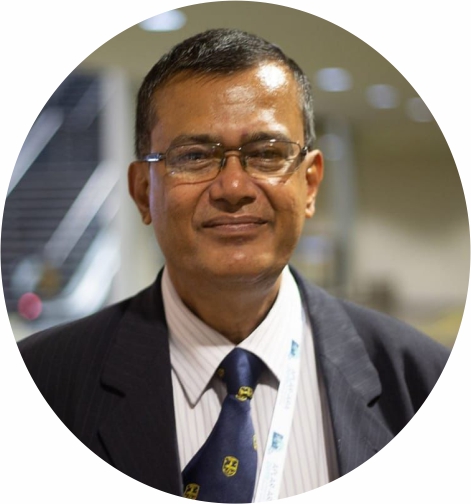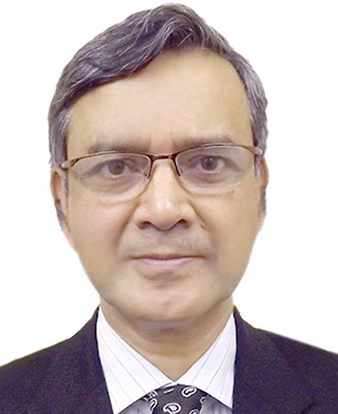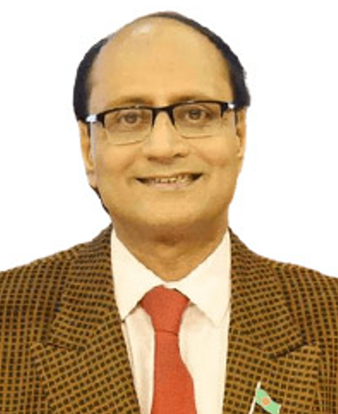
Curriculum
| Primary Care Rheumatic and Musculoskeletal Medicine | Curriculum |
Fees
| 65,000 Taka | Installment 1 Installment 2 Installment 3 |
Course Directors

Dr. Debashish Danda
MBBS (JIPMER, Puducherry, India), MD (General Medicine), DM (Clinical Immunology & Rheumatology), FRCP (London)
Advanced training in Rheumatology (Royal Adelaide hospital & The Queen Elizabeth Hospital, University of Adelaide, Australia)
International Fellow of American College of Rheumatology (FACR)
Fellow of National Academy of Medical Sciences, India (FAMS)
Professor and Founder of the Department
Clinical Immunology and Rheumatology
Christian Medical College and Hospital, Vellore, India
President, Asia Pacific League of Associations for Rheumatology (APLAR) [2021-2023]
Chair, ILAR (2023)
Convenor, APLAR vasculiitis special interest group & IRAVAS (Indian Rheumatology Association vasculitis special interest group)
Past Editor in Chief, International Journal of Rheumatic Diseases (Formerly APLAR journal of Rheumatology) [2012-2018]
Past President, Indian Rheumatology Association [2017-2019]

Dr. Kieran Walsh
Clinical Director at BMJ.
Clinical lead of the medical education and clinical decision support products at BMJ, including BMJ Best Practice.
He is a Fellow of the Higher Education Academy, a Fellow of the Royal College of Physicians of Ireland, a Fellow of the Academy of Medical Educators, and Adjunct Associate Professor at Monash University. In the past, he has worked as a hospital doctor specialising in General Internal Medicine and Geriatric Medicine.
He has a vast amount of experience in online medical education, clinical decision support, face to face delivery of medical education, and both summative and formative assessment.
He has published over 200 papers in biomedical literature and has written four books: the first and only book on cost-effectiveness in medical education; a dictionary of quotations in medical education; a history of medical education in 100 images; and the Oxford Textbook of Medical Education.
Course Coordinator, Bangladesh

Dr. Syed Atiqul Haq
Dr. Syed Atiqul Haq, Chief Consultant, Green Life Center for Rheumatic Care and Research and Immediate Past President, Asia-Pacific League of Associations for Rheumatology (APLAR), established the first Rheumatology clinic in Bangladesh in 1991. He participated in forming the Bangladesh Rheumatology Society in 1997 and now is the President of the Society. The activities of the Society have led to remarkable changes in Rheumatology training, practices, and research in the country. He founded the COPCORD Study Group in Bangladesh in 2000. The department of Rheumatology was established at BSMMU in 2012, and Dr. Haq became its first chairman. He received the Fellowship of the Royal College of Physicians of Edinburgh in 2003 and the International Fellowship of the American College of Rheumatology in 2005. Dr. Haq's areas of academic interest include the Epidemiology of rheumatic disorders, knee OA and SLE.
He has 200 publications, of which 106 are originals, 43 published in international peer-reviewed journals. Some of the latter have quite a high citation index. He was awarded a Gold Medal by "The Bangladesh Academy of Sciences" for his contribution to the advancement of Science in the country in 1997. He has served APLAR in the capacities of APLAR-COPCORD (Community Oriented Program for Control of Rheumatic Disorders) coordinator, Vice President, Treasurer, and President.
Contact Program Coordinator, Bangladesh

Dr. Minhaj Rahim Choudhury
FCPS, DTCD, MD, FACR Professor of Rheumatology BSMMU, Dhaka , Bangladesh
Dr. Minhaj Rahim Choudhury currently working as Professor of Rheumatology and Chairman, Department of Rheumatology Bangabandhu Sheikh Mujib Medical University, (BSMMU) Dhaka, Bangladesh.
He joined the University in 2003, prior to joining in the University he served as Assistant Professor & Associate Professor in Shaheed Suhrawardi Hospital and Sir Salimullah Medical college, Dhaka from 1999 to 2003. He worked as clinical and research fellow in the Royal Free Hospital, University College, Medical School, Hampstead health, U.K. in 2002. He became a fellow of the American College of Rheumatology in 2006. Prof. Choudhury served as Resident physician (Medicine) from 1996-1998. He did his MBBS from Sir Salimullah Medical College, Dhaka in 1984. He obtained MD in 1995 and FCPS in 1996. Prof Choudhury now serves as President Elect of Bangladesh Rheumatology Society. He is editorial board member of the journal Rheumatology and Autoimmunity. He is an advisor of Lupus Foundation, Bangladesh. Prof. Choudhury is a member of Asia Pacific League of Association for Rheumatology (APLAR) RA and Musculoskeletal Ultrasound Special Interest group. He has authored and co-authored around 50 scientific articles in national and international journals including Lancet and presented several scientific papers in home and abroad. Prof.Choudhury was a speaker and trainer of Musculoskeletal Ultrasound (MSUS) course of 21st Asia Pacific League of Association for Rheumatology congress on 7th April 2019 in Brisbane, Australia. He was also a speaker and trainer of the MSUS program organized by Nepal Rheumatology Association held in Kathmandu, Nepal in September, 2019 and February, 2023.
About BMJ
BMJ started out 180 years ago as a medical journal, publishing articles on stillborn children, amputation at the shoulder and the climate of the Isle of Wight.Now, as a values-driven company and global brand, we work toward our vision for 'a healthier world.' We do this by partnering with more than 11,000 medical organisations worldwide so they can provide their users with the best available resources. We make our content available in 18 languages, and create evidence-based subscription-based products to help clinicians better tackle today’s most critical healthcare challenges. It is inspiring to see the rapid growth of students and qualified doctors around the globe progressing their careers and achieving accreditation with our e-learning modules and events. Our expertise extends from publishing and medical education to clinical decision support and events to enhance day to day decision-making and healthcare delivery.
About BSMMU
Bangabandhu Sheikh Mujib Medical University (BSMMU) is the premier Postgraduate Medical Institution of the country. It bears the heritage to Institute of Postgraduate Medical Research (IPGMR) which was established in December 1965. In the year 1998 the Government converted IPGMR into a Medical University for expanding the facilities for higher medical education and research in the country. It has an enviable reputation for providing high quality postgraduate education in different specialties. The university has strong links with other professional bodies at home and abroad. The university is expanding rapidly and at present, the university has many departments equipped with modern technology for service, teaching and research. Besides education, the university plays the vital role of promoting research activities in various disciplines of medicine. Since its inception, the university has also been delivering general and specialised clinical service as a tertiary level healthcare centre.About The Royal College of Physicians
The Royal College of Physicians is a world leader in postgraduate medical education. We deliver a wide range of projects aimed at strengthening health systems and improving medical standards across the globe. Our work spans high-, middle- and low-income countries, ranging from clinical skills workshops in rural Nigeria to accreditation work and guideline development in the middle east. We also develop and coordinate the globally-recognised MRCP (UK) exams as part of the Federation of the Royal College of Physicians.About this course
Welcome to this new course on "Primary Care Rheumatic and Musculoskeletal Medicine", that will be a simple, feasible and practical primer to Musculoskeletal & Rheumatologic illnesses especially written in the context of treating South Asian population. South Asian countries have one of the lowest prevalence of trained rheumatologists in the world. Generally, primary care doctors are the first point of contact & often the long term follow up doctors for patients with RMDs.Skilled primary care doctors are a link between patients and rheumatologists A rapport between upskilled primary care doctors with the nearby rheumatologists will go a long way towards rational treatment of RMDs in semi urgent and urgent situations in the community. This model will prevent disability by quick action at an early preventable stage and thereby enhance safe and holistic care for the patients. This comprehensive course with 45+ modules prepared by expert rheumatologists from across South Asia & beyond, will be supplemented with periodic virtual classroom sessions & 5 days of physical training under the guidance of subject matter experts at Bangabondhu Sheikh Mujib Medical University (BSMMU), Dhaka at the end of the course. We believe this PG certificate course will bridge the gap in musculoskeletal health in the South Asian community.
Course Highlights
Trusted content - Brought to you by the publisher of The BMJ journal with a legacy since 1840 in providing healthcare knowledge and expertise to healthcare professionals.
Course contributors - The peer reviewed course content is authored by more than 90 subject matter experts from across the globe.
GLocal - International editorial guidelines with local context.
Elaborate content coverage - The curriculum includes common rheumatic and musculoskeletal conditions as follows: Non-inflammatory conditions such as back pain, Osteoarthritis, Chronic pain/Fibromyalgia, Soft tissue Rheumatism, Osteoporosis, Hypermobility of joints, Rheumatic manifestations of systemic diseases like Hypothyroidism, Diabetes Mellitus, low Vitamin D state etc. Inflammatory conditions such as Rheumatoid Arthritis, Spondyloarthritis (SpA) including Ankylosing Spondylitis, Psoriatic Arthritis, Reactive Arthritis, enteropathic & undifferentiated SpA, Crystal Arthritis like Gout and Infective Arthropathies including Viral & Septic Arthritis. This course also covers emergencies and serious RMDs such as connective tissue diseases including Lupus and Vasculitides for a quick recognition to enable immediate treatment & a prompt referral to a rheumatologist.
Pedagogy - Virtual classroom sessions, text and video based learning followed by physical training at BSMMU, Dhaka and an exit examination
Certification - On successful completion of course jointly issued by BMJ & BSMMU, Dhaka (minimum passing percentage required is 70%)
Course Structure
E-learning:
The course comprises 6 units with a total of 45+ modules. Each month one unit will be unlocked to study and participants can take an assessment post each module.
- Introductory video lecture presented by Dr Danda (course director) providing an overview of the course
- Three video lectures by course faculty.
Contact Program:
Five days hands on training at BSMMU, Dhaka
Examination Format: MCQs, Viva
Dates of the virtual interactive session with the faculty will be communicated to the candidates through emails prior to the interactive session.
Eligibility criteria
Candidates must hold an MBBS degree from a recognized institute
Contact Us
For more information, please write to us at education.bangladesh@bmj.com or you can call us at 91-120-4345733, WhatsApp no: +919650052070 (09:30 AM - 05:00 PM, Monday to Friday).
Course objectives
- After completing this course, you should be able to:
- 1. Familiarise primary care doctors with common and serious rheumatic diseases in the community
- 2. Upskill primary care doctors by an overview on clinical features, diagnostic & basic management approach to rheumatic musculoskeletal illnesses in the community.
- 3. Train clinicians in the periphery to act as a link between rheumatologist & the patient for interim management issues & not as a replacement for Rheumatologist
- 4. Application of the expertise in primary care rheumatology to protect patients with rheumatic musculoskeletal diseases from quackery & misinformation driven mismanagement, which can prevent long term disability using scientific & economic therapeutic options in modern medicine.
- 5. Knowledge gained by this course should assist primary care doctors in recognising red flag scenarios that need immediate referral to rheumatologist.

